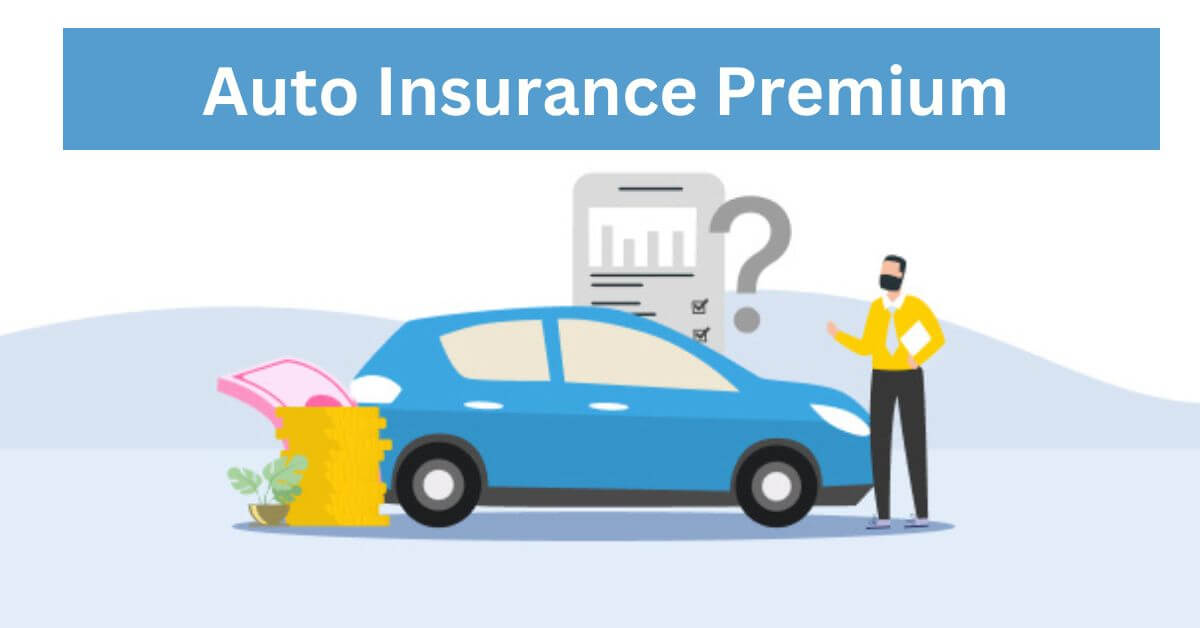An auto insurance premium is the amount you pay to your insurance provider for coverage on your vehicle. It is typically paid monthly, semi-annually, or annually, depending on your chosen payment plan. Having knowledge on how your premium is calculated and what factors influence it can help you make smarter decisions when shopping for auto insurance.
What Is an Auto Insurance Premium?
The auto insurance premium is the price you pay to keep your vehicle insured. In return, the insurance company agrees to cover certain types of damage or liability as outlined in your policy. If you fail to pay your premium, your coverage may lapse, leaving you unprotected in the event of an accident or other incidents.
Also read: Auto Insurance Claims Process- Steps you need to follow
Factors That Affect Your Auto Insurance Premium
Your auto insurance premium is influenced by several factors, including:
- Driving History: If you have a clean driving record with no accidents or traffic violations, you are more likely to qualify for lower premiums. However, a history of accidents or speeding tickets can significantly increase your costs.
- Age and Gender: Young drivers, especially teenagers, typically face higher premiums due to their lack of experience. Statistically, males under 25 tend to have higher premiums than their female counterparts.
- Type of Vehicle: The make, model, and year of your car play a significant role in determining your premium. Luxury cars or vehicles with high repair costs usually come with higher premiums.
- Location: Where you live can impact your premium. Areas with higher crime rates or more traffic congestion often result in higher premiums.
- Coverage Options: The type and level of coverage you choose will also affect your premium. Comprehensive coverage costs more than basic liability coverage, but it provides broader protection.
- Credit Score: In many states, your credit score can impact your auto insurance premium. A higher credit score often translates to lower premiums.
Read More: Types of Coverage Offered by Auto Insurance Companies
How to Lower Your Auto Insurance Premium
Reducing your auto insurance premium may be easier than you think. Here are some strategies to consider:
- Shop Around: Compare quotes from multiple insurers to find the best rate for your coverage needs.
- Increase Your Deductible: Opting for a higher deductible can lower your monthly premium, though you’ll need to pay more out-of-pocket if you file a claim.
- Take Advantage of Discounts: Many insurers offer discounts for bundling policies, maintaining a good driving record, or installing safety features in your vehicle.
- Improve Your Credit Score: By improving your credit score, you may qualify for lower premiums.
- Limit Coverage on Older Vehicles: If your car is older and has a low market value, you might consider dropping comprehensive or collision coverage.
- Maintain a Clean Driving Record: Avoiding accidents and traffic violations is one of the best ways to keep your premium low.
Auto insurance Terms to Know
While auto insurance premium is the primary focus, here are some related terms to understand:
- Deductible: The amount you pay out-of-pocket before your insurance kicks in.
- Policy Limits: The maximum amount your insurer will pay for a covered claim.
- Liability Coverage: Covers damages you cause to other people or their property.
- Collision Coverage: Pays for damages to your car in an accident, regardless of fault.
- Comprehensive Coverage: Protects against non-collision incidents like theft, vandalism, or natural disasters.
Why Auto Insurance Premiums Vary Between Drivers
No two drivers will have identical auto insurance premiums because every driver’s situation is unique. Insurers assess risk on an individual basis, which is why your neighbor’s premium might be significantly different from yours even if you drive similar cars. Factors such as driving history, age, and location all play a role in creating this variation.
The Importance of Reviewing Your Policy Regularly
Auto insurance premiums can change over time due to factors like moving to a new area, buying a new car, or even changes in your credit score. It’s a good idea to review your policy annually and make adjustments as needed. This can help ensure that you’re not overpaying for coverage and that your policy still meets your needs.
Conclusion
Your auto insurance premium is a critical part of your financial planning as a vehicle owner. By understanding what affects your premium and taking proactive steps to lower it, you can save money while ensuring that you have adequate coverage. Do your research to shop around, review your policy regularly, and maintain a good driving record to keep your premiums as low as possible.
